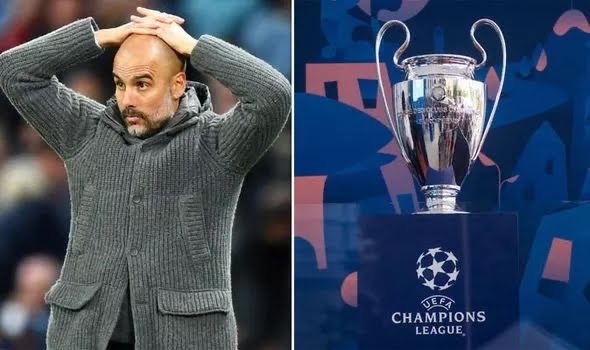Due to the COVID-19 pandemic, nearly all major European soccer leagues and competitions including the Champions League and Europan League have been suspended and it is uncertain when they will resume.
In February of 2020, the Union of European Football Associations, the soccer organization which oversees multiple European-wide soccer competitions, banned the English football club, Manchester City, from competing in all of their competitions for the next two seasons. This includes the world-renowned and commercially valuable Champions League and Europa League. This news has wide-ranging implications for not just Manchester City, but also the entire game, as it is played across Europe.
The football club is being banished from UEFA competitions because it is alleged to have broken the organization’s “Financial Fair Play” (FFP) rules. These regulations are intended to prevent soccer clubs from overspending on players’ wages and gaining unfair advantages over other clubs. This is done by making clubs have to balance their spending with what the clubs earn, as well as restricting the amount club owners can put in to cover those losses. In other words, a rich owner is not allowed to funnel his wealth into a team to give his club an unfair monetary advantage over other teams.
Manchester City is, unquestionably, a rich club. It is valued as the sixth richest club in the world at around 601.6 million Euros (around 682.4 million US dollars). It is also owned by an exceptionally wealthy individual, Sheikh Mansour, the deputy prime minister of the United Arab Emirates, the minister of presidential affairs, and a member of the royal family of Abu Dhabi. UEFA contends that Mansour took his own personal funds and poured them into the club to help buy players, which is outside the FFP rules. More specifically, they charge that he routed around 67.5 million Euros, which mostly came from Mansour’s separately owned vehicle company in Manchester City’s coffers during the 2015-16 season. With only eight million of those Euros legally obtained by one of City’s sponsorship companies, Etihad Airways. The evidence of this infraction was revealed to UEFA via a series of leaked emails and documents published by the German newspaper Der Spiegel.
UEFA’s punishment of the club for this violation is quite severe. In addition to banning City from the Champions League and Europa League for the next two seasons, they also fined the club thirty million Euros (twenty-five million dollars) and may seek to deduct points from City’s standing in the Premier League (the English soccer league).
Although City has announced they plan to appeal the allegations and punishments, it is far from clear that they will win this battle in court. Of course, if Manchester City is found guilty of violating the FFP rules and subsequently punished, it could have serious ramifications for the rest of the Premier League teams and their hopes for qualifying for the Champions League and Europa League. Normally, the top four teams of the Premier League automatically qualify for the Champions League, while the fifth-place qualifies for the group stages for the Europa League. If City’s ban is upheld, its 2020-21 Champions League spot will go to the club that finishes fifth place, and sixth will qualify for the Europa League group stages. Many other legal disputes will unfold over the months about what Manchester City can and cannot compete for, should they also win the 2019-20 Champions League, but it comes to show how much soccer organizations like UEFA can influence the game off the pitch and in the courts.

